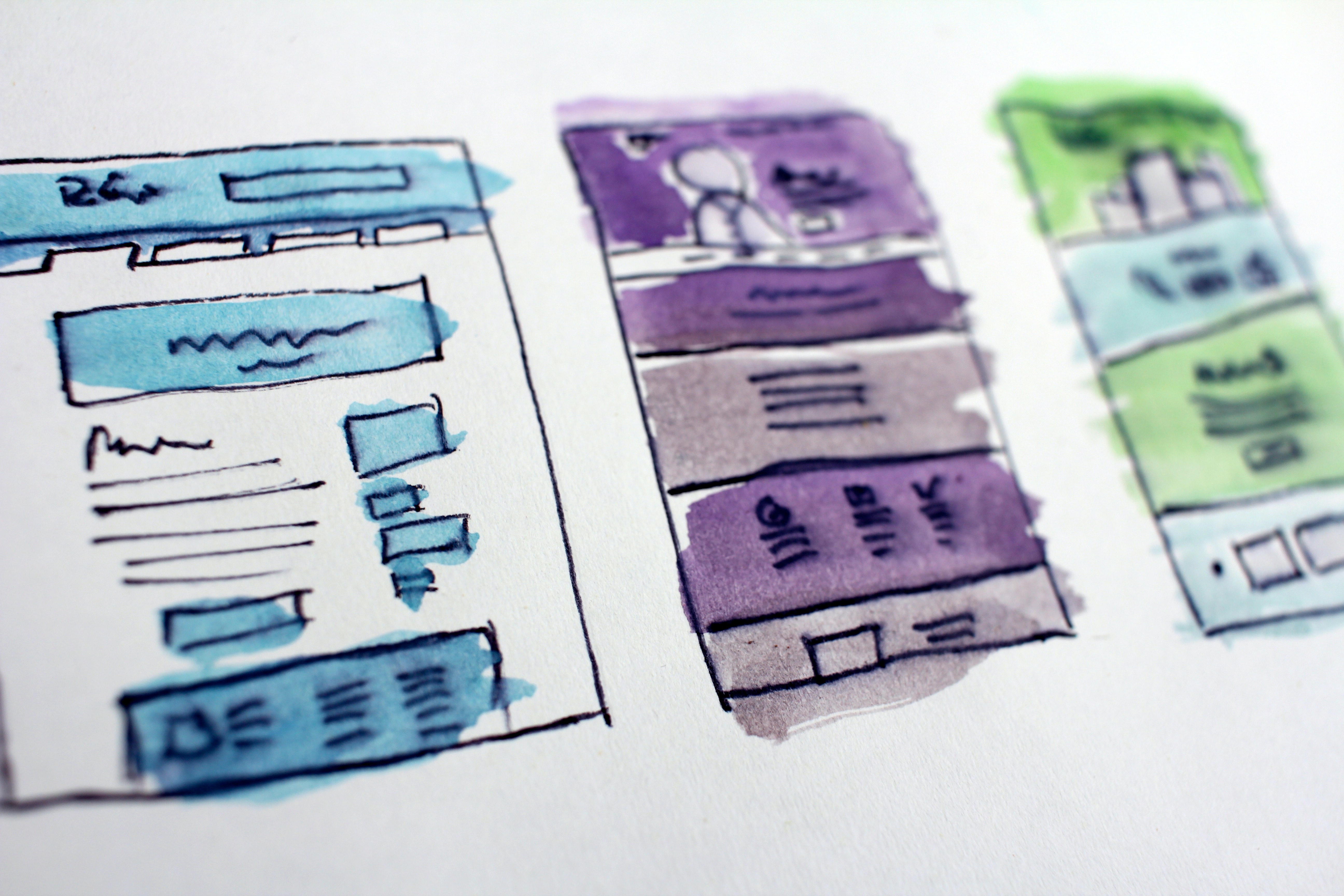When you browse the Internet, you will encounter numerous websites with just the same basic layout. With an increase in content, it becomes more difficult so see original design and everything starts looking the same. One of the reasons for this being a lack of designers.
The Canadian communications professor and philosopher Marshall McLuhan once said: “We shape our tools, and thereafter our tools shape us.” What he means by this is that technology always influences the person using it as well as the outcome of its use. This applies particularly well when looking at predefined tools, such as automated page builders. They contain pre-set layouts without offering too much flexibility which consequently leads to all webpage layouts looking the same – which inevitably becomes very dull.
A website or page builder, such as Wix or Squarespace, is a tool that allows anyone to build webpages, even without design and programming knowledge. In the place of otherwise required photoshop or HTML and CSS skills, these website builders offer you pre-made templates for designs and functions.
Many business owners are quickly deceived by the extremely cheap prices of website builders combined with the immediate gratification of a hosted domain. While you might be able to put together a simple “design” very swiftly, the result doesn’t convert, let alone reach the target audience.
If someone requires a very basic website or landing page for their hobby or simply doesn’t have the funds to hire a web designer, Squarespace, Wix or Weebly might be suitable. Some business owners might think that they could easily save money this way, but here’s why they shouldn’t if they can.
First of all, not investing in a well-designed website and using a free or cheap website builder could actually cost the company revenue – as well as wasted time on an ugly website. Page builders are presented as user-friendly and easy-to-use tools, yet, sometimes they aren’t. Trying to tackle a problem in order to visualise your idea of the design, working with a page builder can be extremely frustrating and time-consuming. What else could you or your employees have done with this valuable time?
Another crucial point to make here is that website builders mostly contain awful Search Engine Optimisation (SEO) tools. Hence, they are not very beneficial when you’d like to optimise a website for search traffic on Google, for instance. A web designer or developer, on the other hand, has knowledge on SEO strategies and will be able to consult you on how to identify the most useful keywords or ensure the website is tagged and structured for optimisation.

Perhaps the most important feature a web designer brings to the table is that they are able to realise your vision of what the company’s digital presence should look like. They’ll develop this concept and turn it into a unique and feasible design. A good designer should be able to transform an understanding of the business’ customers or clients and customise the website or landing page to spark engagement and eventually help in generating sales.
In hiring a web designer, you hire a professional. It’s their job to provide knowledge on the best design practices, most suitable colours and fonts and a general aesthetic tailored to a specific business or person. They further acquired skills in information architecture, user interface and user experience design and how this relates to the webpage visitor flow. Websites are starting to look the same, as almost all of them are using the same templates – enabled by automation. By hiring a designer, you’ll ensure that the presentation of your website remains truly original.
The main reason for encountering the same templates is simply because page builders are trying to offer layouts that appeal to a variety of audiences and user types, which means it becomes more difficult to narrow the design down without the necessary skills. Again, this is what a web designer is for.
So, which one should it be? An automated content builder or professional designer? If you want your website to be built with commercial intent and the objective of the website is to generate sales, then it’s actually no longer just an option to hire a professional. If you aim for launching or growing a business online, a fully capable and aesthetically designed website is a must – and you won’t achieve this with Wix or Squarespace. By now, websites have become a crucial component for any (small) business’ marketing concept.
Therefore, cutting costs in going for an automated cheap or free page builder is simply not worth it. A website is vital to a company’s success and requires investment and this is why you should contemplate how much it will cost you to not have a professionally designed website rather than how much the website itself costs.
If you don’t intend to make money with your website or don’t have the necessary funds for a professionally designed website yet, a website builder is probably what you should go for. This means, however, that you won’t necessarily reach a wide audience as well. Generally, if your online presence isn’t part of your business model, it’s not as important.
If you do intend to have more than a portfolio-like website, an original design and a certain degree of customisation, all for the means of profit, you should most definitely hire a professional web designer, as you won’t be able to reach any of these goals with an automated website builder. The more websites become automated the more the designers seem to become relevant.
As technology and particularly artificial intelligence advances, there could be more creative diversity, but we haven’t reached this state yet. So if you would like to have an exceptional website that represents the nature of your business it is truly worth investing in a designer. As all websites start looking the same, a unique and interesting website will get noticed within the crowded digital space of the web.